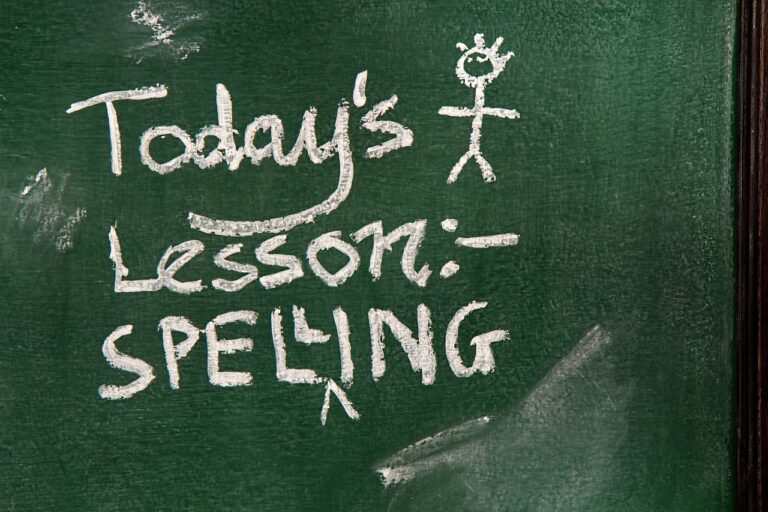Bridging the Gap Between Education and Industry: Preparing Students for the Future of Work
As students transition from the educational realm to the dynamic landscape of the industry, they encounter various challenges. One of the primary hurdles is the disparity between theoretical knowledge acquired in classrooms and the practical skills demanded in real-world professional settings. Many students find it challenging to apply the concepts learned in academic courses to practical scenarios, leading to a gap between what they know and what is required of them in the workforce.
Moreover, the lack of hands-on experience and exposure to real work environments during the educational phase can hinder students’ ability to adapt quickly to the fast-paced and competitive nature of the industry. This transition often requires students to develop strong self-management skills, effective communication abilities, and a proactive attitude to navigate the complexities of the professional world successfully. Without prior exposure to real-world challenges, students may struggle to integrate into the industry seamlessly and fulfill the expectations of their employers.
Importance of Practical Skills in the Modern Workplace
In today’s competitive job market, possessing practical skills has become increasingly crucial for individuals aiming to succeed in the modern workplace. Employers across various industries demand candidates who can not only demonstrate theoretical knowledge but also apply it effectively in real-world situations. This shift in focus highlights the need for educational institutions to equip students with hands-on experience and practical skills that directly translate into the demands of the workplace.
Individuals who can showcase practical skills are often better equipped to navigate the complexities of their roles with confidence and efficiency. This ability to seamlessly transition theoretical knowledge into practical applications can set professionals apart in their respective fields, providing them with a competitive edge. As industries continue to evolve and embrace technological advancements, the importance of practical skills in the modern workplace will only continue to expand, making it imperative for individuals to proactively develop and hone these capabilities.
Collaboration Between Educational Institutions and Industry Partners
Educational institutions and industry partners are increasingly recognizing the benefits of collaborating to bridge the gap between education and the workplace. Such partnerships provide students with valuable real-world experiences and practical skills that are essential for success in the modern workforce. By working together, educational institutions can ensure that their curriculum is aligned with the needs of the industry, preparing students for the challenges they will face upon graduation. Industry partners, on the other hand, can benefit from fresh perspectives and innovative ideas that students bring to the table.
Furthermore, collaborations between educational institutions and industry partners create opportunities for networking and professional development for both educators and industry professionals. These partnerships allow educators to stay informed about the latest trends and technologies in the industry, enabling them to continuously update their teaching methods and course content. Industry partners, on the other hand, gain access to potential future employees who have been exposed to their company culture and work environment through internships, co-op programs, or industry projects. By fostering a collaborative relationship, both parties can contribute to the development of a skilled workforce that meets the current and future needs of the industry.
• Educational institutions and industry partners collaborate to bridge the gap between education and the workplace
• Partnerships provide students with real-world experiences and practical skills essential for success in the modern workforce
• Collaboration ensures that curriculum is aligned with industry needs, preparing students for post-graduation challenges
• Industry partners benefit from fresh perspectives and innovative ideas brought by students
Furthermore, collaborations between educational institutions and industry partners create opportunities for networking and professional development for both educators and industry professionals. These partnerships allow educators to stay informed about the latest trends and technologies in the industry, enabling them to continuously update their teaching methods and course content. Industry partners, on the other hand, gain access to potential future employees who have been exposed to their company culture and work environment through internships, co-op programs, or industry projects. By fostering a collaborative relationship, both parties can contribute to the development of a skilled workforce that meets the current and future needs of the industry.
What are some challenges students face when transitioning from education to the industry?
Some common challenges include lack of practical skills, limited industry knowledge, and unfamiliarity with workplace expectations.
Why are practical skills important in the modern workplace?
Practical skills are important because they allow employees to apply their knowledge in real-world situations, solve problems, and contribute effectively to the organization’s goals.
How can collaboration between educational institutions and industry partners benefit students?
Collaboration between educational institutions and industry partners can provide students with real-world experience, networking opportunities, access to industry expertise, and potential job opportunities.
How can students make the most of collaboration between educational institutions and industry partners?
Students can make the most of collaborations by actively participating in internships, co-op programs, industry projects, networking events, and seeking mentorship from industry professionals.
What can educational institutions do to better prepare students for the transition to the industry?
Educational institutions can update their curriculum to include more practical, hands-on learning experiences, develop partnerships with industry partners for real-world projects, and provide career readiness programs and resources for students.





